
by Gideon Marcus
Hornet's Nest
Last month, I wrote a rather savage review of the January 1966 issue of Analog, one of the more egregious examples of Campbellian excess married with an aggrieving nadir of quality. In short order, my mailbox was deluged with denouncing letters asserting that:
- Campbell, as the genius who founded modern Science Fiction, could do no wrong
- I clearly could never understand why people appreciated Analog
It is instructive that when I give an issue of Analog a favorable review, which happens reasonably often, my mailbox stays empty. But disparage the mighty Campbell at your peril! Such are the occupational hazards of the Reviewer.
Anyway, what goes down must come up, and this month's issue of Analog is actually pretty good. Let's take a look at the final mag of the month, shall we?
The issue at hand
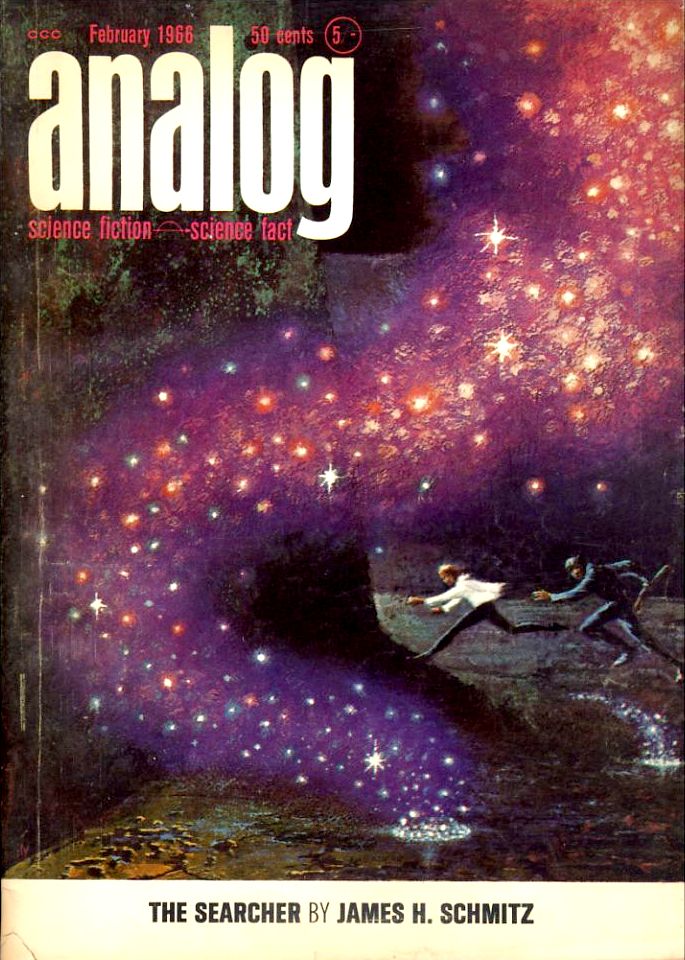
by Kelly Freas
The Searcher, by James H. Schmitz
Two guards at an interstellar space port watch with momentary horror as a purple cloud of radiation erupts from a star yacht and devours them in an instant. The alien marauder has traveled light years, from the dense nebula known as The Pit, in search of a purloined navigational beacon. Meanwhile, a local professor with an eye to make a buck, is preparing to fence said beacon, hoping to do so before two private agents hired by the University League thwart his plans.
Thus ensues first a cloak and dagger story followed by a crime thriller and topped off with a mad chase from alien horror.
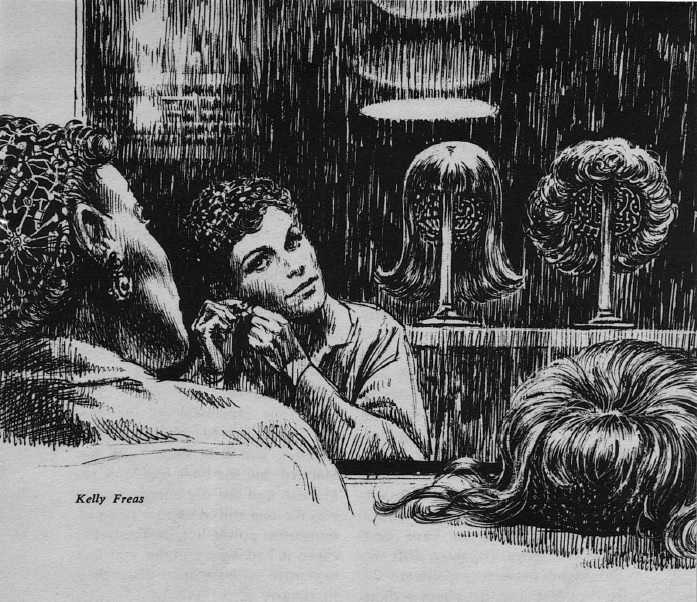
by Kelly Freas
I was excited to see James H. Schmitz' name on the cover as he's written some of my favorite works. He also has a preference for writing women protagonists, which is refreshing. I'm afraid my review of this piece must be somewhat alloyed. The concept is great, the characters are interesting, and I enjoyed the piece. But.
I think the biggest problem with The Searcher is its length. Had this been a novel length story, Schmitz could have unfolded the mystery of the alien's existence and motivations more organically, rather than relying on straightforward exposition. We get a lot of solid chunks of explanation interspersing the action. And it's certainly not the case that Schmitz can't write action; he does so quite admirably, beginning with the very first scene.
Had I received this manuscript, I'd have asked for an expanded rewrite — and been happy to publish it!
As is, it's a promising but uneven three star work.
The Switcheroo Revisited, by Mack Reynolds
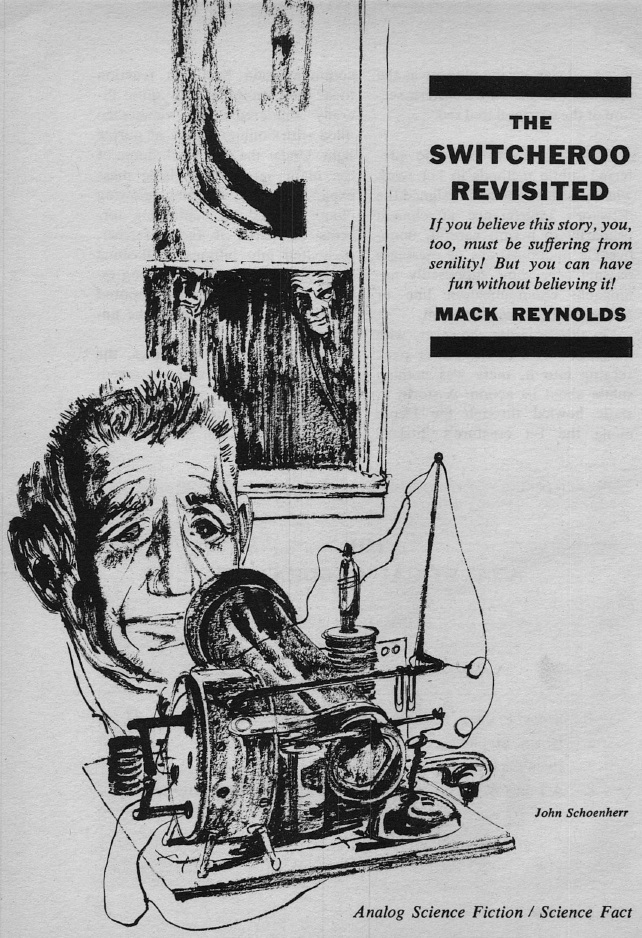
by John Schoenherr
A rather bumbling young Lieutenant in the KGB is dispatched to the United States to find a marvelous invention first depicted in the pages of a science fiction magazine (name unknown, but I think it starts with an A). He's intercepted by the CIA, but rather than simply arrest him, instead they do their best to convince the agent that the fictional invention is real. There's a cautionary sting at the end of the story.
Cute, but rather trivial for Reynolds. I do enjoy how the author has woven a future history of the Superpowers, though, based on his extensive world travels. The geopolitics and slang lend a tang of verisimilitude. Three stars.
Twin-Planet Probe, by Lee Correy
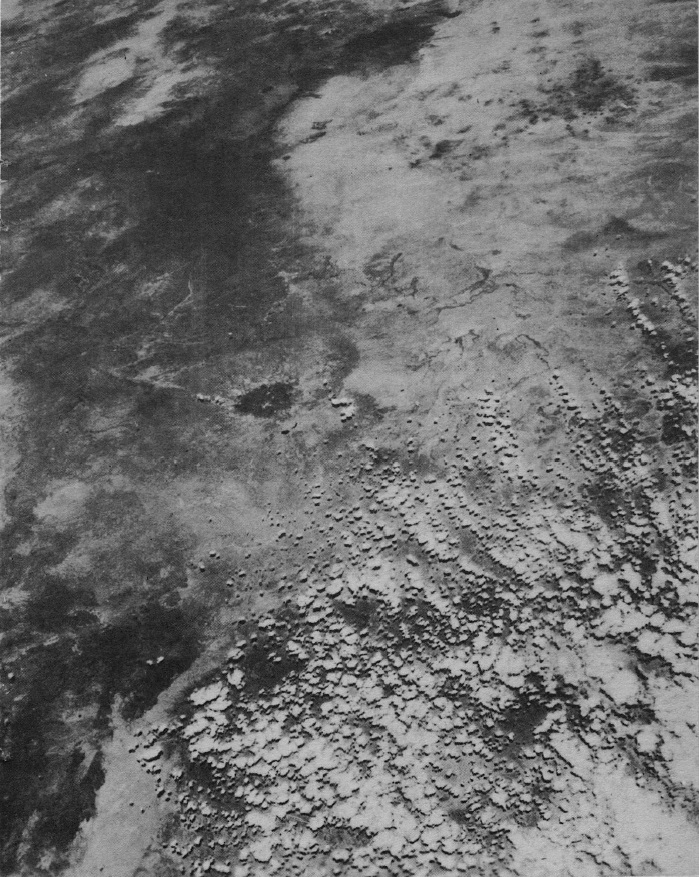
This is a fun piece that purports to report the results of the first Martian probe to the twin worlds of Earth and Luna, written so as to mirror the sparse and potentially misleading data obtained from Mariner 4. The moral of the story is that we don't have enough data to make sweeping conclusions yet.
Four stars (and let's get some more data!)
An Ornament to His Profession, by Charles L. Harness
Patrick Conrad, once a chemist, later an attorney, and now a patent lawyer, is a haunted man. Three years ago, he lost his chemist wife and their young daughter in a car accident. This trauma has left him in something of a working daze, redoubling his vocational efforts in an effort to put the pain out of his mind.
His current problem: the patenting of a company chemical is threatened from several corners, most trivially by the impending poaching of Conrad's highly efficient secretary by another department, more seriously by a key team member's certainty that he has made a deal with the Devil to ensure success of the chemical's synthesis, and most critically by the revelation that the patent is based on a previously published college thesis.
Conrad must untangle all of these intertwined issues, all while wrestling with the pain of loss that seems also to be directly involved with the patent somehow.
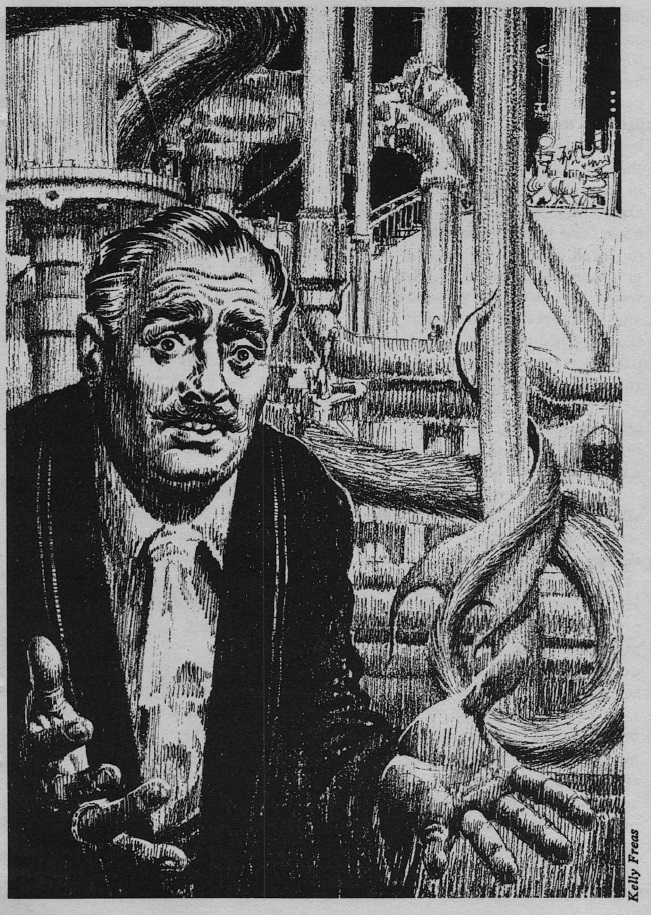
by Kelly Freas
While Charles Harness is a name that may be unfamiliar to you, as it is a byline that has not appeared in more than a decade, Analog readers will certainly remember "Leonard Lockhard", a pseudonym for the combined talents of Harness and Theodore L. Thomas, who currently writes for F&SF. I'm pretty sure Harness is a patent attorney in real life as his knowledge of the law seems prodigious.
In any event, Ornament is a beautiful story, lyrical and thoughtful — almost misplaced in this magazine, honestly. I'm not quite sure I understood the ending, though I reread the piece to see if I had missed something; I may have simply missed a subtle reference. In any event, it's my favorite story of the issue.
Four stars.
Minds Meet, by Paul Ash
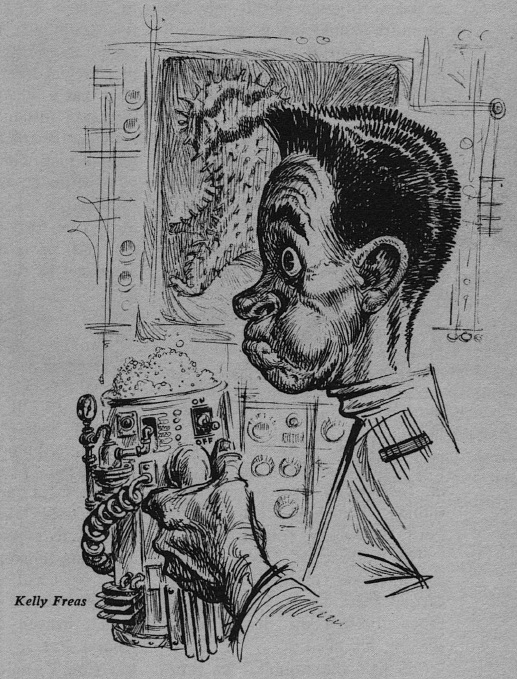
by Kelly Freas
Lastly, we have the welcome return of Pauline Ashwell (a Campbell discovery from England who goes by both feminine and masculine bylines for some reason). In this tale, a human and alien finally achieve true communication after seven years of frustratingly dissatisfying, if technically successful, discourse. All it took was a little filthy intoxication.
A pleasant three stars.
Summing up

I'm sorry to disappoint those hoping to yell at me for "not understanding why people like Analog", but I liked this month's Analog. Indeed, this issue virtually ties the (similarly returned to form) latest issue of Galaxy with a 3.4 rating, the best of the month. Close behind are New Worlds (3.2), Fantasy and Science Fiction (3.1), and Science Fantasy (3).
Only IF (2.9) and Amazing (2.1) finished below the mediocrity line, and IF has the new Heinlein serial to commend it.
We are back to late 50s levels of female engagement in the genre: 10.2% of the new fiction was by women. There was also a full two magazines' worth of superior content this month, more than twice as much as in December. It really was a pleasure to be a fan this first month of January 1966!
Let's see how February fares…
The Journey is once again up for a Best Fanzine Hugo nomination — and its founder is up for several other awards as well! If you've got a Worldcon membership, or if you just want to see what Gideon's done that's Hugo-worthy, please read his Hugo Eligibility article! Thank you for your continued support.

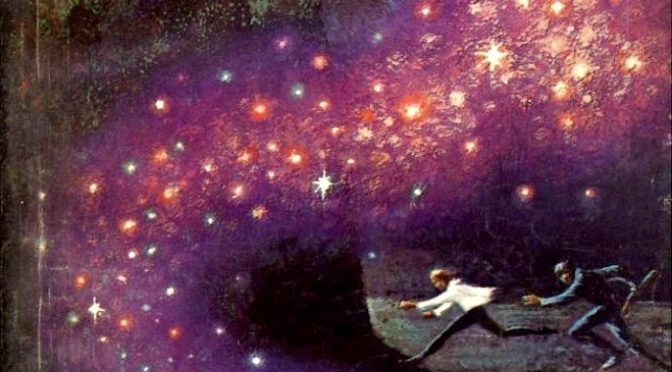

Reading every Analog shows, I think, some respect for the Editor.
Some. Campbell is a… mixed blessing.
And of course Gideon (or one of his minions) also reads every issue of every other sf magazine, even GAMMA. . .
Good sir, I will have you know that I have no minions, merely esteemed colleagues!
The editor, on the other hand, is my boss.
I hesitate to say that last month was so bad there was nowhere for Analog to go but up (seems like tempting fate), but this was quite the recovery.
The Schmitz did have its problems. This is a length he seems to have trouble with at times. It's still a sound Schmitz story, and that's generally a good thing.
"Switcheroo" was mildly amusing, I suppose. The story that caught the Russians' attention is one Reynolds wrote 12 or 15 years ago. My biggest problem is the idea that the KGB would be so utterly incapable of telling a fact article from fiction. Maybe Mack was taking a subtle swipe at the sort of science articles Campbell tends to run.
That said, this month's science article wasn't bad and made a good point.
I don't know if Harness is a patent lawyer or not. Ted Thomas certainly is and has written not a few stories about patent attorneys facing similar problems. But he always leaves out the human element. The only problem I have with this story is the reason given that writers write, which also hurts the very end a little.
Always nice to see something from Pauline Ashwell. I have a vague sense that she chooses her byline based on whether a story seems more "masculine" or "feminine" in subject, or maybe it's just the protagonist's gender. In any case, this one was all right, though not her best work.
I guess I'll give Campbell a reprieve this month, but he's definitely on probation.
With regard to the KGB being too stupid to make this mistake, this is explained in the story: the fellow giving the assignment is senile, the Lieutenant taking the assignment is stupid, and the whole thing is a harmless endeavor designed to earn the kid some laurels so he can be kicked upstairs to a safe job.
I appreciated that the oh-so-clever Americans get hoisted by their own petard in the end. It would normally be kind of a dumb ending, but in context, it's a poke in Campbell's eye.
I thought "The Searcher" was quite good. Maybe not a profound story, but a very professionally written action/adventure/spy/crime/monster story. A lot of exposition, as you say, but the future technology was nicely handled, in a sort of Heinlein-ish "take the future for granted" way.
"The Switcheroo Revisited" didn't do much for me. It was too obviously aimed at the SF audience, with its obvious allusion to the Cleve Cartmill story "Deadline," that supposedly "predicted" the workings of the atomic bomb.
"An Ornament to His Profession" was very strange, and shocking to see in the pages of Analog. Part mainstream psychological fiction, part exploration of patent law, part pure fantasy; I really didn't know what to make of it. It was certainly intriguing.
"Minds Meet" was like a very light dessert after the heavy main course of the above story. Trivial, perhaps, but well done. It's good to see genuinely alien aliens, too.